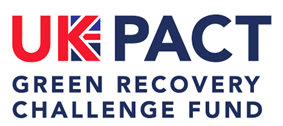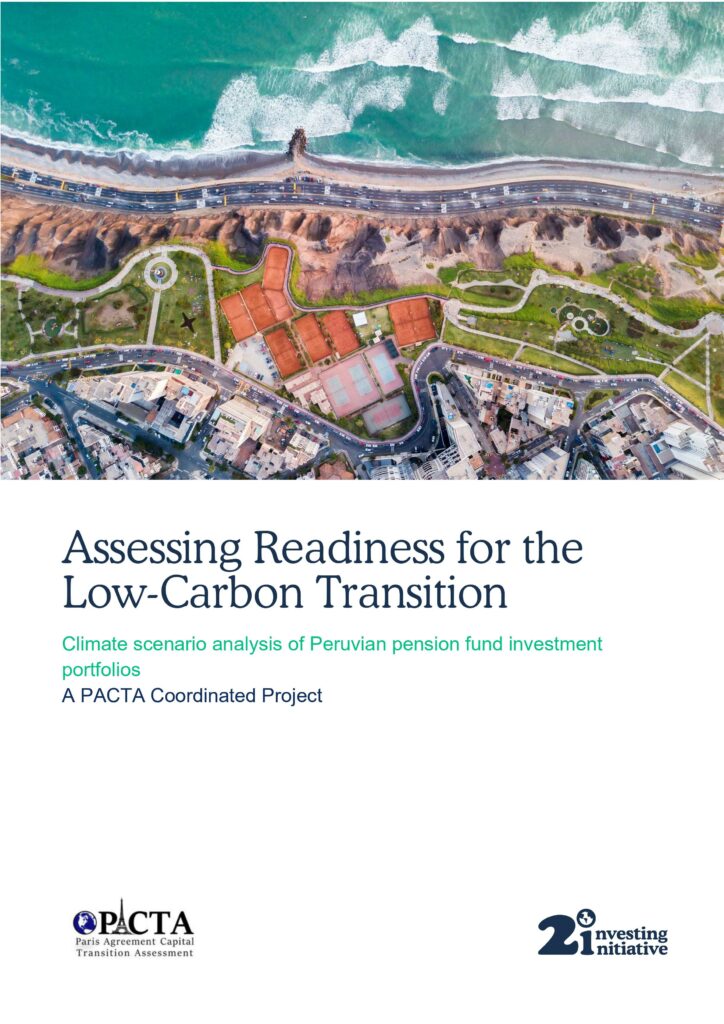To carry out the study, 2DII applied the Paris Agreement Capital Transition Assessment (PACTA) climate scenario analysis methodology to the portfolios of the five Peruvian pension funds, measuring their (mis)alignment in seven climate-relevant sectors. This report contains an aggregate analysis at sector level and identifies potential exposure to transition risks, as well as opportunities for the pension funds in the transition to a low-carbon economy. In addition to this report, each pension fund has received individual results with company-level information, to help them better understand where their climate exposures are coming from, and as a basis for engaging with companies or setting strategies to align with climate scenarios.
To help mitigate their transition risk exposure and maximize opportunities associated with the net-zero transition, 2DII recommends several options for the pension funds, such as carrying out individual or collective engagement actions to persuade companies to integrate climate change in their business strategies.
This study is the latest in the PACTA Coordinated Projects, a dedicated program in which 2DII works with governments, supervisors, and industry associations to assess national financial sector alignment with climate goals.
About our funder: This report is part of a project entitled “Strengthening capabilities on climate action for investors of the Peruvian financial ecosystem, within the framework of the Green Financing Roadmap,” funded by UK PACT. This work reflects the authors’ views only, and the funder is not responsible for any use that may be made of the information it contains.



